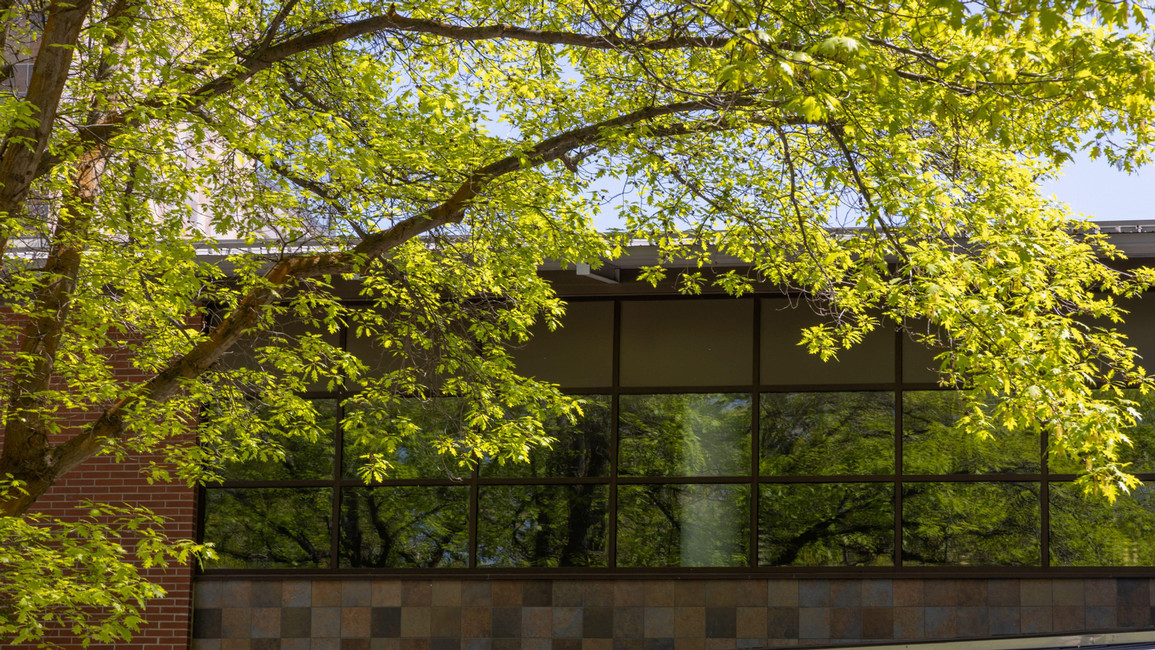
Civil Rights Compliance
Reporting Options and Resources
From reporting to the University or law enforcement to utilizing confidential reporting options, Central Washington University (CWU) community members have different options to seek assistance and/or report sexual misconduct.
Who Can I Talk To? How Can They Help?
For more information about your "Sexual Misconduct Reporting Options and Resources at CWU", view this informational brochure.
Access the brochure hereUniversity Reporting
-
Who Can I Talk To On-Campus?
From utilizing confidential resources to reporting to the University or law enforcement, you have choices about:
- Where to seek assistance; as well as,
- What, where, and when to report, if you choose to do so.
Disclosure of sexual misconduct to many members of the University community, all employees that are not specifically designated as confidential, will require the incident to be reported to the Title IX Coordinator.
If you are unsure about contacting the Title IX Coordinator or initiating an investigative and/or resolution process, consider contacting on or off-campus confidential resources outlined below.
-
Report Sexual Misconduct to the University
Use the Concern and Support (reporting) form to report incidents of sexual misconduct to the Title IX Coordinator.
-
Anonymous Reporting for Students
CWU students may report sexual misconduct anonymously using the Concern and Support (reporting) form.
- When submitting the report, write "NA" or "Anonymous"under “Reporting Party Information”.
Central Washington University employees that are not designated as confidential may NOT complete an anonymous report.
-
What Happens After an Incident is Reported to the University?
To learn more about what happens after a University report is made, visit the "What Happens After a Sexual Misconduct Report" page.
Reporting to Law Enforcement
-
Law Enforcement Reporting Options
Any University community member that has experienced sexual misconduct has various options regarding contacting law enforcement:
- You can choose not to notify law enforcement. You can utilize a confidential resource if you are unsure about whether to report to law enforcement and want to learn more. For more information about on or off-campus confidential resources, see the “Confidential Resources” section below.
- You can utilize University resources and/or the Title IX Coordinator to receive assistance in notifying appropriate law enforcement agencies. If you choose to notify appropriate law enforcement agencies, a University or community confidential advocate can be present for support during any meetings with law enforcement.
- You can also contact your local law enforcement agencies to report sexual misconduct, anonymously or formally, and may be directed to another law enforcement agency that has jurisdiction over the incident. Jurisdiction is dependent upon where an incident occurred and/or where the involved parties reside. The law enforcement agency may provide you with University or local resources following your report.
-
Local Law Enforcement Contact Information
University Police and Public Safety
- 1211 N Wildcat Way
- CWU Ellensburg Campus
- 509-963-2359
- Emergency- 911
- After Hours Non-Emergency- 509-925-8534
- 100 N. Pearl St., Ellensburg, WA 98926
- 509-962-7280
- Emergency- 911
Kittitas County Sheriff’s Office
- 307 W. Umptanum Rd., Ellensburg, WA 98926
- 509-962-7525
- Emergency- 911
CWU Centers-Local Law Enforcement
Please contact your local law enforcement, as well as your local information line or crisis line, for resources and assistance specific to your area. If you need assistance finding or understanding local resources specific to reporting to law enforcement and/or legal intervention, please contact University Police and Public Safety and/or Civil Rights Compliance.
-
Preserving Physical Evidence
If someone has recently experienced sexual misconduct, the University encourages community members to preserve evidence even if you are unsure about reporting to the University or filing criminal charges.
Preserving physical and documentary evidence is important as it may assist in obtaining a protective order or proving that an incident occurred in criminal case or University investigative process. Please consider taking the following steps to preserve evidence, if appropriate:
- Avoid drinking, bathing, showering, brushing your teeth, using mouthwash, or combing your hair.
- Avoid changing your clothes. If you have already changed your clothes, place your clothing and other items (sheets, blankets) in a brown paper bag.
- You should seek medical assistance within 72 hours of the incident to receive proper care and so that any physical evidence can be preserved. Medical assistance can include treatment for injuries, as well as preventative treat for STIs and pregnancy testing.
- The University encourages community members to go to the emergency room of local hospitals and request a Sexual Assault Nurse Examiner (SANE). The SANE will conduct a forensic examination as well as collect physical and documentary evidence. If Crime Victim's Compensation paperwork is completed then SANE exams are free of charge, even if you choose not to notify law enforcement or anonymously report to anonymously. Requesting a SANE and completing an examination does NOT mean that you must file a police report. Evidence can be anonymously preserved for a set period if you decide you want to use it later.
- The Washington State Crime Victim’s Compensation Program may be able to cover all, if not most, medical costs when a crime is reported to the police and fulfills other program requirements.
In all cases of sexual misconduct, University community members are encouraged to preserve other evidence, including but not limited to handwritten or electronic communications and photographs of the incident or physical injuries. If you are willing and able, document everything you can recall about the sexual misconduct incident as you are able to recall it.
Confidential Resources
Confidential resources are available to CWU community members through on and off-campus confidential resources, meaning a report will not be made to the Title IX Coordinator or law enforcement.
- The University offers confidential resources for students including medical services, counseling services, and victim advocacy.
- Community resources offer similar supports for all University community members.
Confidential resources will share information per your wishes except in situations of immediate threat or danger, as well as abuse of a minor or elder.
- On-Campus Confidential Resources for Students
-
Off-Campus Confidential Resources for Students and Employees
- ASPEN Victim Advocacy Services (Ellensburg)
- Comprehensive Healthcare (Ellensburg)
- Kittitas Valley Healthcare (Kittitas County)
-
CWU Centers-Local Confidential Resources
Each CWU Center campus will have varied local resources, including closest medical care or emergency room, law enforcement agencies, and victim advocacy services. Please utilize local information or crisis services (e.g.; rape crisis, victim advocacy, domestic violence shelter) for resources specific to your area.
If you need assistance finding or understanding local resources specific to sexual violence or misconduct, please contact PATH or Civil Rights Compliance.
CWU News

$4 million federal grant aimed at helping with school psychologist shortage
February 25, 2026 by Marketing and Communications

CWU Disability Services aims to provide equitable access to education
February 23, 2026 by Rune Torgersen
Contact
Civil Rights Compliance
Barge 204